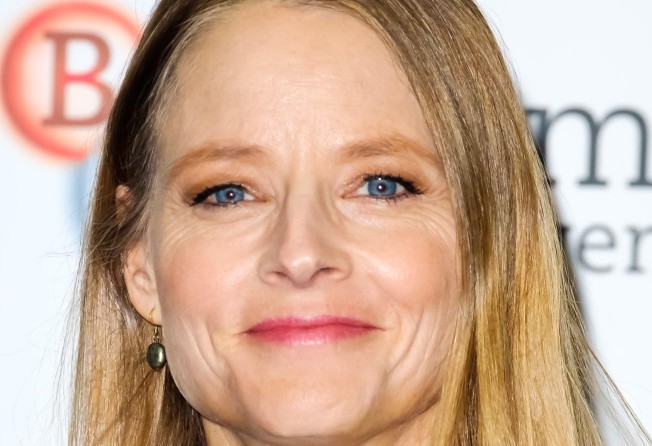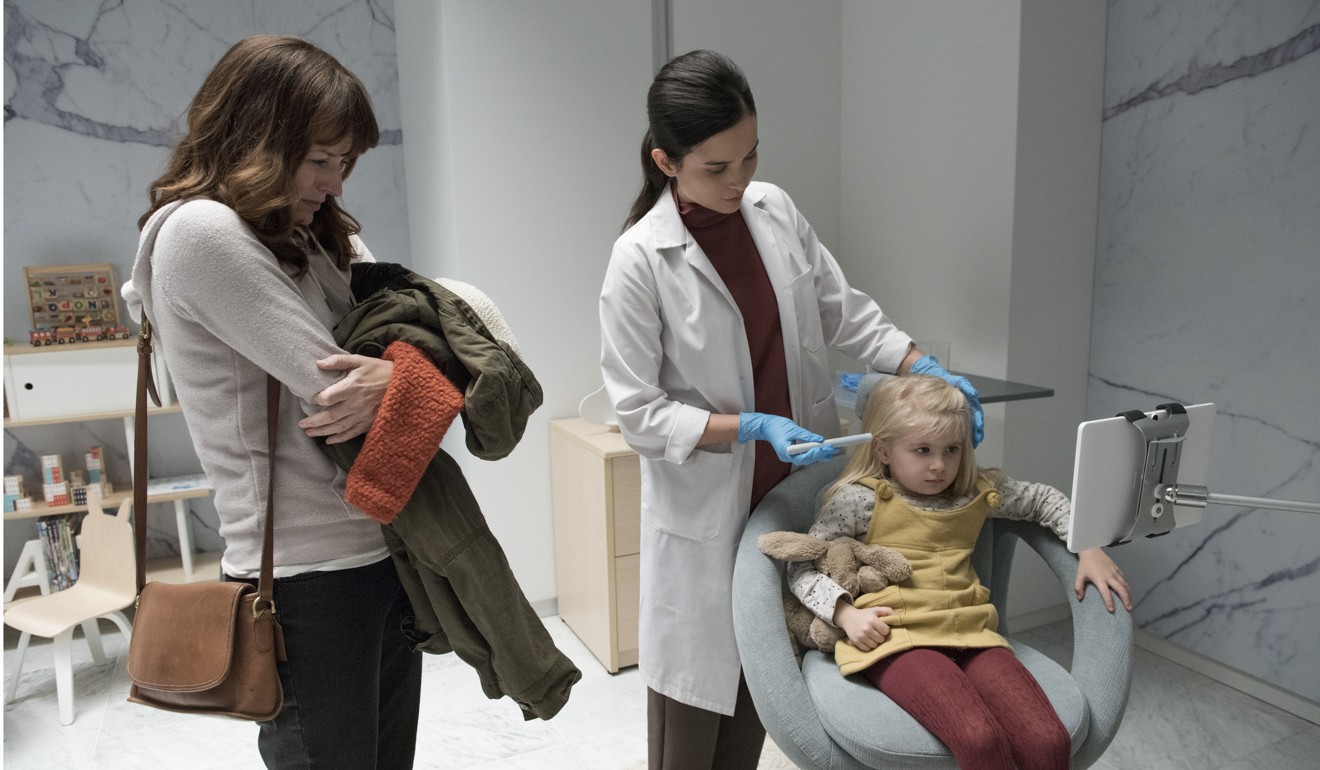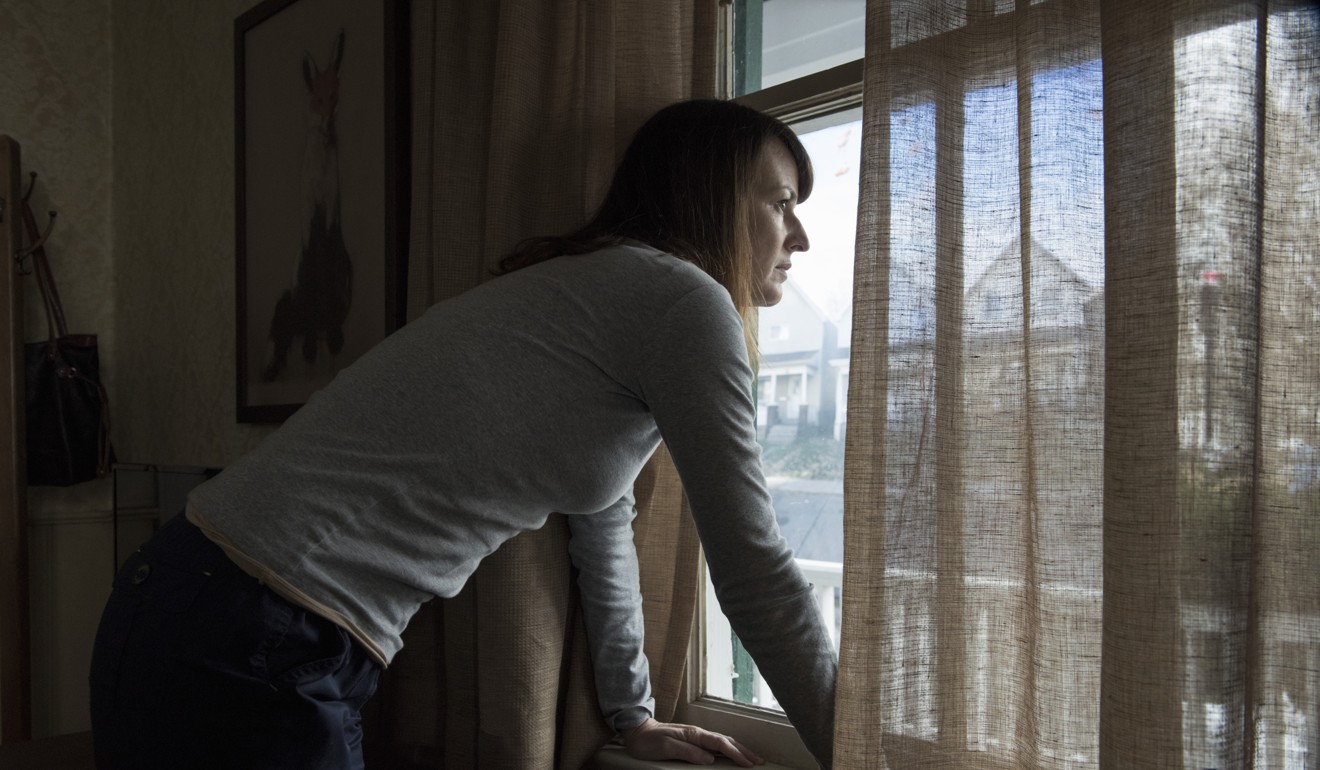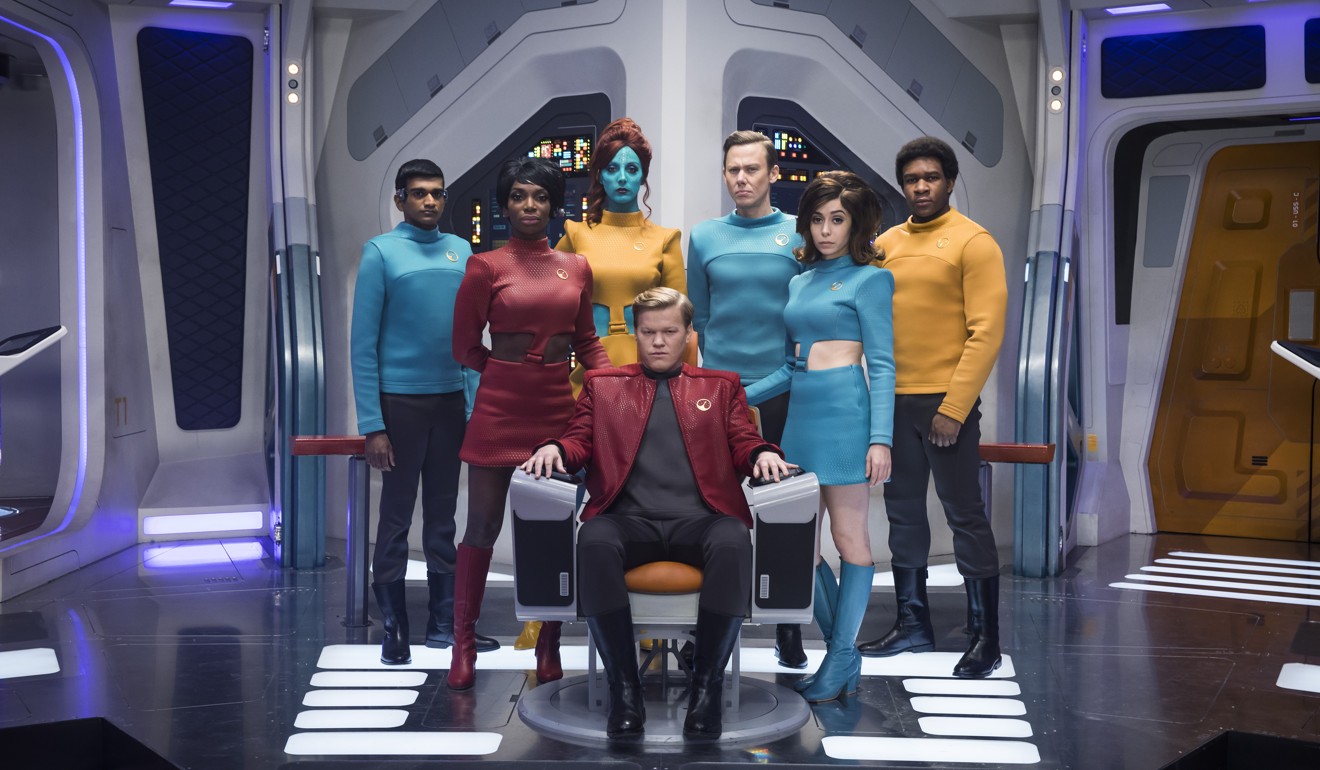Why Jodie Foster directed an episode of Netflix’s Black Mirror and how it reminded her of her own childhood
The Hollywood actress admits she was a little behind the Black Mirror cult when she first came on board but has delivered an ‘intensely personal’ episode about a mother using sophisticated tracking tools to watch her daughter

“Hi, I’m Jodie,” says Jodie Foster, a little superfluously, when I arrive in her suite in London’s Langham Hotel. Dressed in a grey trouser suit and silver brogues, with that brown bob and those blue eyes, she is instantly recognisable.
From early roles for Martin Scorsese in Alice Doesn’t Live Here Anymore and Taxi Driver to her Oscar-winning parts as a rape victim in The Accused and FBI rookie Clarice Starling in The Silence of the Lambs, she has left an indelible impression on Hollywood.
Now 55, Foster hasn’t appeared on screen since the 2013 sci-fi Elysium, preferring to concentrate on a directorial career that began with an episode of the 1980s TV series Tales from the Darkside made when she was just 26.
Three years later, she directed her feature debut, the well-liked Little Man Tate – but like so many directors, she has more recently been aiming her sights at television, shooting episodes of Orange Is the New Black and House of Cards.
She has now directed “Arkangel”, the second episode in the new series of Black Mirror, the Emmy Award-winning sci-fi drama about the perils of technology by British writer Charlie Brooker. For those who haven’t seen the show, it is a prescient and frequently disturbing work made up of stand-alone stories. A Tales of the Unexpected for the Tinder generation, subjects including virtual reality, social media, hacking and more have all come under its watchful eye.
While Black Mirror began on Britain’s Channel 4 – the first two series were just three episodes apiece, followed by a Christmas special – the show transferred to streaming giant Netflix last year. A six-episode run followed, one that was every bit as engaging and provocative as what had come before.
Now season four begins, again on Netflix, and has scored a huge coup in securing Foster, who is undoubtedly the highest-profile name to commit to shooting an episode. Other incoming directors for this season include John Hillcoat from Lawless and David Slade from Amazon show American Gods.

As for Foster, she admits she was a little behind the Black Mirror cult when she first came on board. “I didn’t even know there was an anthology,” she says with a laugh. “But I was a huge fan of The Twilight Zone [another episodic show that frequently shocked viewers] when I was a kid, as was every American. That really was part of our growing up.”
Foster came on board after she had lunch one day with Cindy Holland, Netflix’s vice-president of original series.
“[I was] bemoaning the state of the film business, and saying I really love feature-length films,” she says. “I like movies that have a beginning, middle and end. Not every story is a 10-season arc. I said I wish there was a way to be a part of that on streaming. And she said, ‘Have I got the show for you!’”

Ego-free, Foster had no problems about directing a screenplay written by Brooker, the driving force behind the show.
“You’re there to serve a creator. And there’s beauty to that. I like being a worker. I like getting in there and going, ‘Right, I can help you.’ And what’s so great about Black Mirror … each one is its own indie film. Each one has its own cast, it has its own production designer, composer, editor … everything is new. So you really are the voice of the film.”
Foster adds that her episode “probably has the least amount of technology in it” of all the recent Black Mirror episodes. Yet it is a fascinating familial tale set in a near-future America about a mother (Rosemarie DeWitt) who employs a sophisticated tracking tool to keep an eye on her daughter Sara (Brenna Harding).
“This was an experiment, this show, for me,” Foster says. “I really wanted it to feel like an indie film. I wanted it to feel like it was just happening in front of you.”
In my life, it was very complicated with my mom. There were a lot of mixed messages
She adds that it felt intensely personal, as it reminded her of own upbringing in Los Angeles, her parents having divorced before she was born.
“Obviously I grew up with a single mom, who was very much involved with every aspect of my life, including my work life,” she says.
“That process, that idea, of the connection of a mother and a daughter from birth until the moment that they leave the nest is a big personal story for me, on both sides – as the daughter and as the mother, because I have two children [teenagers Charles and Christopher] as well.”
Foster admits the line between keeping your child safe and wanting to nurture their individuality is very fuzzy.
“In my life, it was very complicated with my mom. There were a lot of mixed messages. She wanted me to have better experiences than she had. She wanted me to be powerful. She wanted me to be independent. And when I was powerful and independent, she tried to [metaphorically speaking] break my kneecaps so I wouldn’t run away from her.
“I think a lot of women feel that way. A lot of women who came from a generation where they had no power are raising powerful women.”

Intriguingly, my encounter with Foster comes just as Hollywood is going through a period of self-examination in the wake of the Harvey Weinstein scandal that led to a flurry of allegations of sexual misconduct about the producer and numerous others.
Foster is reluctant to comment directly – after all, she never worked with Weinstein, she says – but she is emboldened by the way women and men are bravely coming forward to share their stories of abuse. Much of this comes down to the advent of social media, she says.
“We now are living in a world of digital technology where a person living in a small farm in Alaska knows about LGBT rights, and knows there’s a hotline and has a voice in the world, globally. That’s amazing and that’s really just recent – the last five to 10 years,” Foster says.
“The democratisation of the internet has changed everything and given people a voice who didn’t have one. There are lots of bad things about technology, but that’s one of the good ones.”
Just don’t expect Black Mirror to make an episode about it.
Black Mirror Season 4 streams on Netflix from December 29